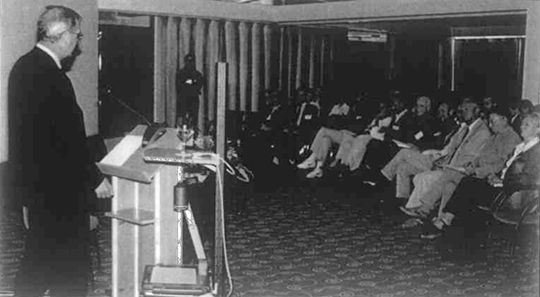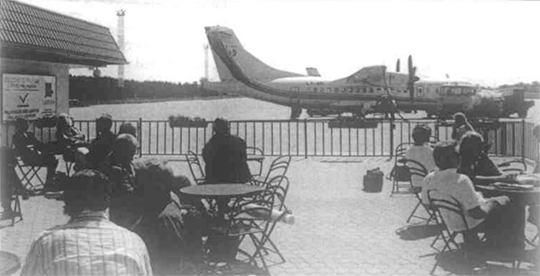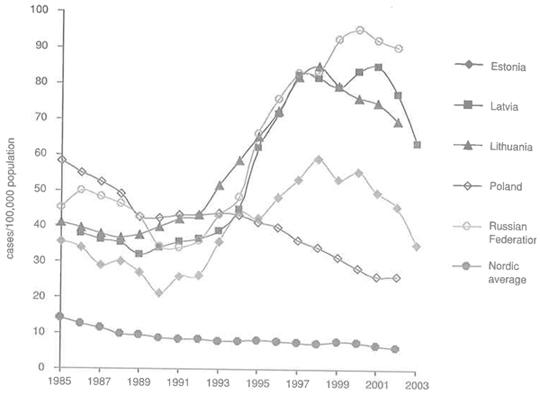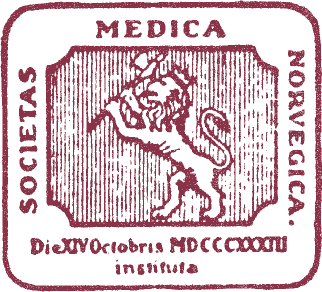Task Force on communicable disease control in the Baltic Sea region
Michael 2004; 1: 315–9.
Enormous changes have taken place over a relative short period of time in the former Soviet states. The transition in the economy, the disappearance of old authorities, in part a loss of law and order and poverty were reflected in a fall in life expectancy, and increases in morbidity rates, for example a rise in the incidence of tuberculosis. This gave reasons for concern, also in the Baltic Sea region. In addition, the HIV virus made its entry into former Soviet states in the nineties.
The concern that was expressed by the professional community led to an extraordinary move. Eleven prime ministers and the president of the European Commission, at the biennial summit in Kolding, Denmark in April 2000, decided to establish a Task Force on communicable disease control in the Baltic Sea region, of special representatives for the prime ministers and the president. Its mission was through concerted action to reduce the risk and burden of communicable diseases in the region. Norway, then chairing the Council of the Baltic Sea States, CBSS, volunteered to chair the Task Force, and to establish a secretariat.
It took the Task Force half a year of consultations and deliberations to decide on a work programme, which then became the basis for project development. Six programme groups, on surveillance, HIV, tuberculosis, antimicrobial resistance, primary care development and prison health support were established, and technical advisers mobilized. Standardized projects were designed and implemented in all six programme areas, all monitored through a common database. The Task Force initiated collaboration on training in public health, and on health sector reforms. In all, 138 projects were under implementation or completed in the spring of 2004. Direct project support was close to 10 million Euros. The same estimated amount of funds are used for networking, training, technical advisers, secretariat and evaluation.
More information is available at the homepage www.baltichealth.org.

On the 6th Nordic-Baltic congress on infectious diseases in Palanga, Lithuanid 3–6 June, 2004, there was a session where the Task Force activities were summed up. The picture shows Ambassador Harald Siem in front of his audience. (Photo: Ø. Larsen)

Lithuania is a country with obvious potentials, not only on the regular tourist market, but also as a place for international conferences. Still the international airport in Palanga, near the city of Klaipeda and the famous sandy shores, look rather domestic. (Photo: Ø. Larsen 2004)
What did the Task Force achieve?
The incidence rates for HIV and tuberculosis have flattened out or are declining at the end of this period (Fig 1 shows the incidence rates for TB). The direct impact of the Task Force can not be quantified; the changes to the better happened after strengthened efforts from the local authorities, and coincide with overall improvement of socioeconomic indicators. But the added effect of the Task Force is plausible.
National guidelines have been changed on tuberculosis control and antimicrobial resistance, surveillance has been strengthened, primary health care professionals have developed wide networks and collaborated on guidelines in the field of communicable diseases, and prison health improved, both as to improved routines in prisons, better hygiene and collaboration with the civilian sector. A permanent secretariat for the Council of the Baltic Sea Public Health Training Network is established in Estonia, work is underway to establish pilot areas for health sector reform in Lithuania, Poland, Russia and Norway. Extensive training in project planning and management has been given.
The Task Force has contributed to high political awareness of the problem in respective countries, of HIV/AIDS, tuberculosis or other communicable diseases, to changes in national neighbourhood cooperation policies and funding, and to increase in national budgets to combat communicable diseases.
One further aspect of the work was related to the enlargement of EU in May 2004, when the ‘political geography’ of the whole area changed. In this sense the activities of the Task Force have been guided to support accession priorities as well as encouraging the collaboration with the Russian Federation, as the frontier with EU became longer.
Evaluation
The Task Force collaboration has been evaluated under the oversight of a Steering Committee, with members from the London School of Hygiene and Tropical Medicine, The Moscow Medical Academy (Sechenov) and the Fridtjof Nansen Institute in Oslo. The evaluation has taken three approaches, looking at the political context, the programme areas and selected projects. The use of the database, and the monitoring of the database is a forth element (1, 2, 3, 4,).
What will be the follow up after the Task Force?
The available information on the burden of communicable diseases in the Eastern part of the Baltic Sea region strongly suggests that more needs to be done to contain these epidemics. Although the number of new cases may now be falling, the number of people living with HIV/AIDS continues to rise. The registered rates of new tuberculosis cases have stagnated, but are still unacceptably high.

Figure 1: Tuberculosis incidence in the Eastern Baltic Sea countries per 100,000 populations. Early data for Russia for 2003 give an incidence rate of 70, confirming the positive development.
Source: (WHO Europe 2004); 2003 data provided by chief epidemiologists.
Note: 2003 data are provisional.
A wide and well functioning network has been established, on the political level as well as the practical and professional level. These networks must be maintained, and preferably widened. The future collaboration will probably be less in the shape of project support and funding, as the economic indicators improve. Technical collaboration, common understanding and mutually supportive strategies, and acting through established networks. will probably be the core of the future collaboration of communicable disease control in the region.
The Task Force has also laid the basis for collaboration at the political level, and this is already reinforced through the initiative of EU Northern Dimension Partnership in Public Health and Social Well-being, in which the networks created within the Task Force framework are of importance. The partnership framework will cover future expert groups on HIV/AIDS, antimicrobial resistance, primary health care, prison health, and possibly tuberculosis. The Council of the Baltic Sea Public Health Training Network and the work on health sector reform will also fall under the Partnership. The Task Force database for project oversight will be adapted and used in the future collaboration.
References
Hønneland G, Rowe L. Health as International Politics. Combating Communicable Diseases in the Baltic Sea Region. Ashgate, Aldershot GB, 2004.
Rowe L. Report from the Steering Committee for Evaluation of the Task Force on Communicable Disease Control in the Baltic Sea Region. FNI-report, Oslo, 2004.
Rechel B, McKee M. Learning Lessons from the experience of the Task Force on Communicable Disease Control in the Baltic Sea Region. Programme Evaluation. London School of Hygiene and Tropical Medicine, London, 2004.
Ohna V. The Web-tool. FNI-report, Oslo 2004.
Head of Secretariat,
Directorate of health and social affairs (SHD)
p.o.box 8054 Dep
N-0031 Oslo, Norway
harald.siem@shdir.no
